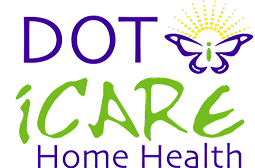World Autism Awareness Day & How to Move from Awareness to Acceptance

April 2nd marks a significant day globally: the 17th annual World Autism Awareness Day. The United Nations has designated the day as an occasion to advocate for the full realization of all human rights and fundamental freedoms for individuals on the spectrum. Furthermore, this April marks over fifty years since the first observance of an Autism Awareness Month. As we consider these milestones, it’s vital to consider the current facts surrounding autism, while also considering the steps necessary to move from awareness to acceptance.
World Autism Awareness Day
Observed by all member states of the United Nations, every April 2nd is a day dedicated to raising awareness for autism spectrum disorder (ASD). In Canada, 1 in 50 Canadian youth are on the Autism Spectrum. This means that hundreds of thousands of individuals aged 1 to 17 face wide variation in impairments in speech, non-verbal communication, and social interactions. Furthermore, children and youth with ASD are more likely to have other long-term health conditions such as ADD/ADHD, learning disabilities/disorders, and anxiety disorders.
On a global level, the overall incidence of ASD is also high, estimated to be 1 in 100 children. And a lack of understanding and empathy has left a large negative impact on them, their families, and their communities. As such, observing this day in our society is key to raise visibility and to generate discussion about autism.
Awareness to Acceptance
More recently, autism advocates have pushed to change the initiatives’ wording from raising awareness to promoting acceptance. While awareness has been an important step in the overall advocacy mission, acceptance provides an opportunity to center the autistic and neurodivergent experience by challenging stigmas and stereotypes. Acceptance would mean an active, continuous commitment towards full inclusion, such that individuals on the autism spectrum are embraced for who they are, with a recognition of and focus on their unique needs for support and services.
Acceptance to Care
Evidence-based psychosocial interventions have been found to improve the communication skills and the quality of life of both individuals on the spectrum and their families. iCare Home Health’s autism treatment plans are uniquely tailored to each person’s needs, with an emphasis on goal-focused and collaborative care provided by skilled at-home caregivers who understand ASD and the challenges it can present. Our team of Recreation Therapists, Personal Support Workers, and Nurses are ready to honour your family’s unique situation to provide the best support possible.
If you need a caregiver in the Mississauga and Oakville areas, connect with us at (905) 4916941 or email info@icarehomehealth.ca to learn about the services we offer for autism patients.

